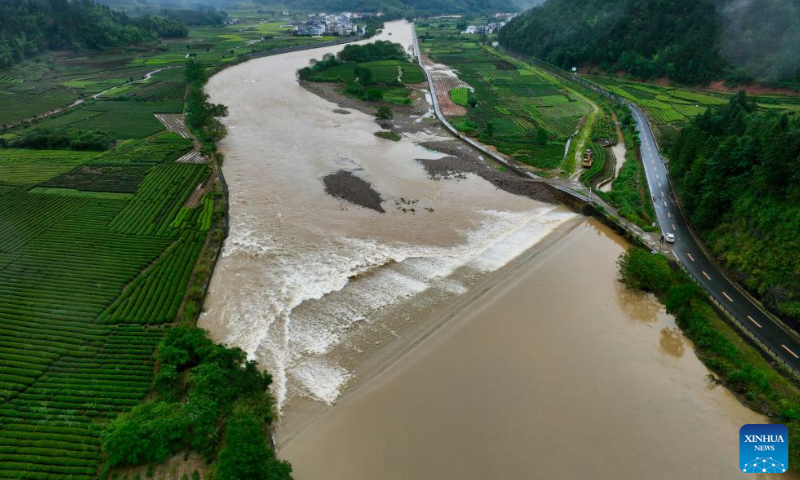China establishes first weather modification institute to cultivate talents for disaster prevention amid climate change

China's first Institute of Weather Modification has been officially established in Chengdu, Southwest China's Sichuan Province. The new institution aims to cultivate high-level professionals to enhance the role of weather modification amid climate change, the director of the institute told the Global Times on Thursday.
The institute, established at Chengdu University of Information Technology, is dedicated to talent cultivation for weather modification, said Yang Dingyu, the director of the institute, adding that this will enhance the role of weather modification in addressing climate change, ensuring national food security, improving the environment, and promoting socioeconomic development.
This bachelor's degree program in meteorological technology and engineering, with a specialization in weather modification, is the first undergraduate program in China to focus on talent development in this field, Yang introduced.
Yang added that the major was established in 2023 with an intake of 80 students. The program offers courses in subjects such as meteorological physics, cloud precipitation physics, and meteorological big data and artificial intelligence.
In recent years, with the increasing impact of meteorology on transportation, agriculture, tourism, energy, and ecosystems, the role of weather modification has become more prominent, Yang added.
Under reasonable conditions, weather modification can fully utilize climate resources to achieve goals such as increasing rainfall and snowfall, preventing hail, dispersing rain, dissipating fog, and preventing frost, Yang said, adding that it is an effective means for disaster prevention and reduction, as well as for the development of aerial cloud water resources.
Currently, the weather modification industry still needs to further improve in terms of operational accuracy, efficiency, and scientific management, and there is a clear lack of technological talent, so it is necessary to strengthen basic scientific research and talent cultivation in areas such as cloud microphysics, new catalysts, and operational equipment technology, Yang said.
The institute has established a faculty team with impressive research and teaching capabilities, including over 10 experts from the China Meteorological Administration and various provincial meteorological bureaus serving as adjunct professors, according to media outlet Sichuan Guancha.
In recent years, there has been a noticeable increase in the frequency and intensity of extreme weather events worldwide, leading to significant repercussions for both human society and ecosystems, according to the Xinhua News Agency.
According to a report from the United Nations Convention to Combat Desertification on Monday, some 77.6 percent of Earth's land experienced drier conditions during the three decades leading up to 2020 compared to the previous 30-year period.